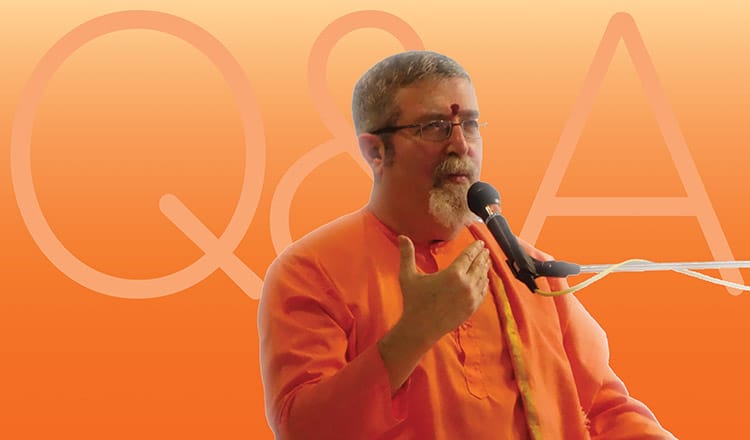Sivananda Bahamas Blog
Expand Your Horizons …
Our Blog
Karma Yoga Practice and Benefits
Question: How is it possible to practice Karma Yoga without truly knowing its meaning?
Answer: Fundamentally, there are two main spiritual paths. One is called the yoga of action, and the other is called the yoga of knowledge. Yoga of action is called Karma Yoga. Karma Yoga means, first of all, to do our duty as a service to our fellow beings. If everyone does his duty, then everyone within society is going to be happy and content. Nothing is going to be lacking anywhere. In Karma Yoga, there is this idea of dharma and of swadharma.
Swadharma means my own duty. In Karma Yoga, the first thing is to do our own duty, but with no expectation of the fruits of action. Not only is there no expectation for the fruits of action, but we offer the action itself and all its fruits to God. This is how Karma Yoga is practiced.
First of all we need to understand what duty is. Second, we need to understand what it means to not expect the fruits of action, and why not to expect the fruits of action. Third, what does it mean to offer the action itself and the fruits of the action to God?
Doing our duty means serving our fellow beings through doing our duty and this is called seva in Sanskrit. This is how Karma Yoga starts. For example, Karma Yoga can start simply by cooking in the kitchen, not for me — but rather, for my fellow beings and doing it with all my heart, as an expression of love, with the intention that through this cooking, I am going to benefit many people. Or, if I have to clean the temple, I will put all my heart into it, so when people come to the temple they will be inspired. Whatever I do, I am going to fulfill that duty with all my heart, with the intention to do good — this is called seva and this is service.
Nevertheless, such fulfillment of duty with such an intention by itself is not Karma Yoga. For it to be Karma Yoga, there are a few elements that must be there. First of all: do not expect to receive the fruits of this particular action. Why not? What is the reason? If I have a desire for the fruits of action, then I must reap the fruits of action. This is how it works. If I desire the fruits of action, I am bound to experience the fruits of action. The fruits of this action will bind me spiritually. Whenever I act, if I have a desire for the fruits, I must experience the fruits — if not now, later, in another life, it does not matter. The moment I desire the fruits, this action becomes a karma.
Karma consists of action and reaction. I have to reap the fruits of my action. By doing so I am sinking within the cycle of samsara. I am going deeper and deeper within the cycle of samsara, and the keynote of samsara is suffering. In order to liberate myself and also to be able to teach others how to liberate themselves from the bondage of actions, the key is not to desire the fruits of the actions because by desiring them, I must reap them. The moment I reap the fruits of the action, it becomes a vicious cycle. The fruits of the action become the cause for another action, and so on and so on, and I sink deeper and deeper and deeper within samsara.
The other thing is offering the action itself and the fruits of the action to God. Now who is God? In yoga we say, “God is all.” I offer the action itself and the fruits of the action to God, and God is all — is within, and is without. By doing so, this action becomes very powerful, beneficial and liberating. I offer the action and its fruit to God and I receive it back as Prasad. I receive it back as Grace. Grace is the essential element needed for spiritual realization.
Whenever I practice Karma Yoga, first of all, I have to learn seva, or service, with good intention. Then, it is good to put in those factors that turn it into Karma Yoga. Service with good intention includes factors such as not desiring the fruit of action and offering the action and its fruit to God.
Now, the benefit of Karma Yoga is that it purifies both the heart and mind. It makes the heart and the mind open receptacles to receive spiritual or divine knowledge. By practicing Karma Yoga, we become ready and eligible to take the path of knowledge. The path of knowledge is the path that leads to Self-Realization, or to spiritual liberation. Karma Yoga is a preparation for Jnana Yoga, for the yoga of knowledge. And the yoga of knowledge is the cause for Moksha, or spiritual liberation.
If the heart is pure and if the mind is pure, Karma Yoga becomes a cause, which later on allows us to meditate. The cause of good meditation is a pure heart and a pure mind, and Karma Yoga is the practice, which purifies the heart and purifies the mind. And then, through the practice of Karma Yoga we will also be able to meditate. Swami Sivananda explained that meditation is the key to Spiritual Realization. Without meditation, we cannot realize the Self.

Swami Swaroopananda is a senior disciple of Swami Vishnudevananda. A practicing yogi from a very young age, Swami Swaroopananda has dedicated his life to the practice and teaching of yoga. He taught in Yoga Teacher Training Courses around the world and is currently teaching advanced yoga philosophy courses and lectures internationally. He is Director of the Sivananda Ashram Yoga Retreat and acharya (spiritual director) for the Sivananda centers and ashrams in the Bahamas and the Middle East. He is a member of the Board of Directors of the International Sivananda Yoga Vedanta Centres.
Upcoming Courses
In honor of the Sivananda lineage and Swami Swaroopananda's birthday, we invite all guests, friends, and residents of the ashram to come together for a celebration.
During this special time of year we invite you to join us in celebrating wisdom, love, compassion, and the transcendence of artificial barriers.








